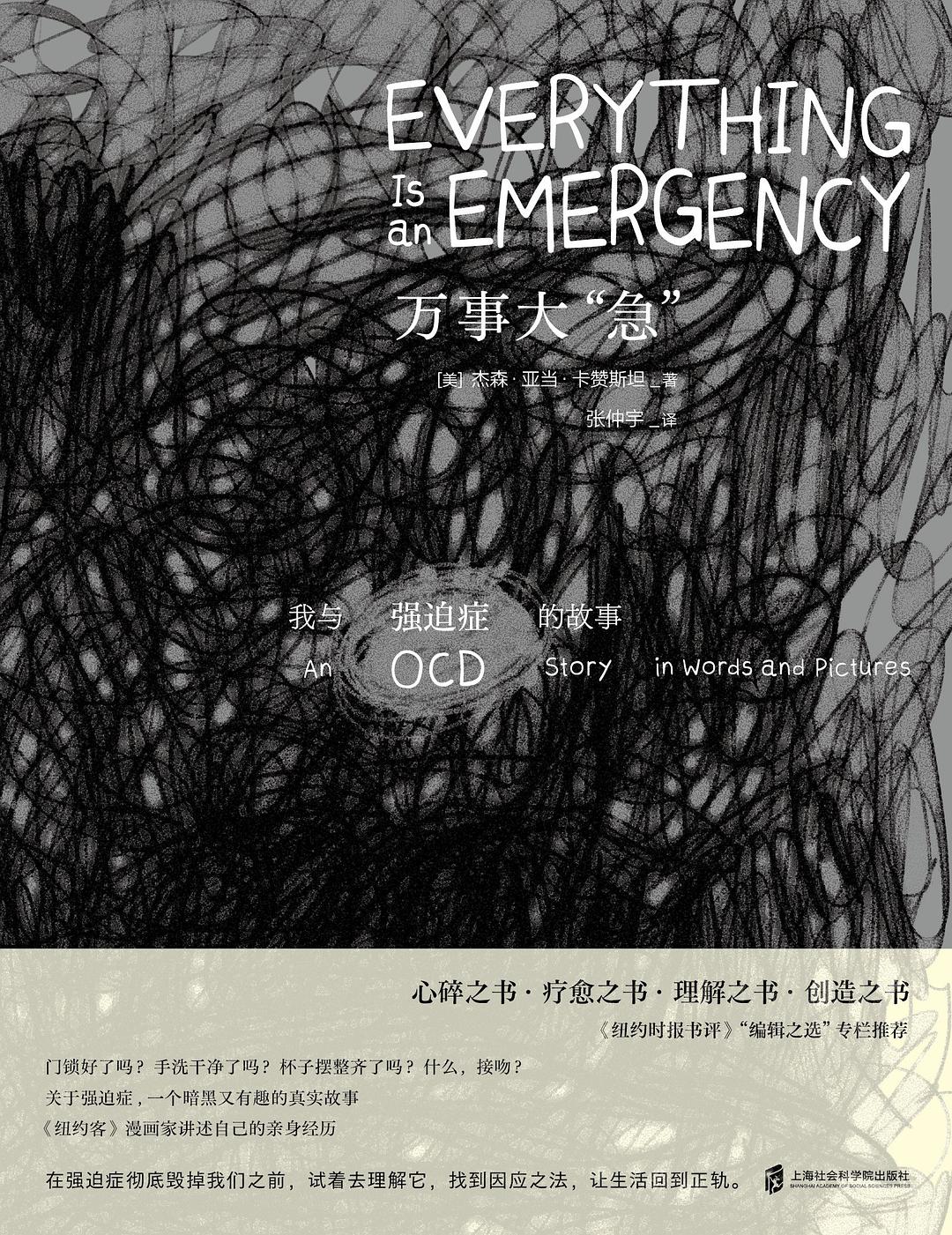WULOLIFE
《万事大“急”: 我与强迫症的故事》作者:上海社会科学院出版社 译者: 张仲宇
《万事大“急”: 我与强迫症的故事》作者:上海社会科学院出版社 译者: 张仲宇
Couldn't load pickup availability
Description
内容简介 · · · · · ·
- 编辑推荐 -
✧心碎之书✧疗愈之书✧理解之书✧创造之书
✧《纽约时报书评》“编辑之选”专栏推荐✧
★门锁好了吗?手洗干净了吗?杯子摆整齐了吗?什么,接吻?一个关于强迫症的暗黑又有趣的真实故事,《纽约客》漫画家讲述自己的亲身经历。
★在强迫症彻底毁掉我们之前,试着去理解它,找到因应之法,让生活回到正轨。
★“这个世界上到处是小孩、小狗、垃圾和空调滴下来的水。社交互动出错的机会比比皆是。老鼠就在我的脚前从一堆垃圾跑向另一堆垃圾。在某个地方,我的朋友正在生我的气。我可能忘了关烤箱,门也"
- 内容简介 -
漫画家杰森·亚当·卡赞斯坦自小患有强迫症。这是一种精神疾病,迫使他不由自主地他只是想过平常的生活,却一直被他那过于活跃、焦虑的大脑困扰。像握手或分享饮料这样的日常事情,在他那里都会像滚雪球Description尬的症状,但随着生活的变化,他的强迫症却越发严重。在人生处于低谷的时候,他终于下定决心求助心理医生,并努力学会与这种病症相处。在这部图像小说中,这位《纽约客》漫画家坦率而有趣地分享了自己与强迫症作斗争的故事:强迫症足以毁掉一个人的生活,Chinese:
- 媒体推荐 -
这本书是一份进入失常心理世界的导览,对于任何不清楚严的强迫症会给身心造成何种影响的人来说,它都是一次不容错过的教育机会。也可以从卡赞斯坦的顿悟中得到安慰:找到感觉良好那几秒,并享受其中。
——《纽约时报书评》
这本书彻彻底底解救了我。这是本精彩、坦诚的必要之书,它揭示了人类大脑的复杂性,同时向我们展示了创造力和友谊可以成为我们的支柱。对于任何想知道自己看待世界的方式是否跟他人不同的人来说,这是本必读之书。
——阿达·利蒙,《明亮的死物》作者
这是本深入困境入谷底的笑脸石,再到我所见过的至为有趣的团体治疗场景。即便没有强迫症,你也会喜欢上这本书。像我一样,你也可以从这些暗黑又有趣的真实故事中寻觅到属于自己的收获。
——艾米·布鲁姆,《白宫》作者
这本书在读得我心碎后又疗愈了我的心!
——谢尔比·洛曼,《好孩子的奖励》作者
作者简介 · · · · · ·
- 作者简介 -
亚当·卡赞斯坦(Jason Adam Katzenstein报》《疯狂杂志》和“卡通频道”。他还为许多图书绘制插画。此外,他也是卫斯理大学的客座教授。
- 译者简介 -
张仲宇,朋友们都叫他“举举”。
“我在很多方面都和本书作者有着强烈的共鸣:我也是一名漫画作者,而且我也一直遭受着强迫症的折磨。'强迫症'这个词在生活中常常被误用作对完美主义的一种调侃,作为强迫症患者,内心的挣扎和痛苦不被人理解,无数次试图跟人解释均被'我也有强迫症''你就是太闲了,想太多'这样的话打断,这对我来说是很的想法用图文的每一个字的解读让我深深体会到了切实被理解的感动。因此。
